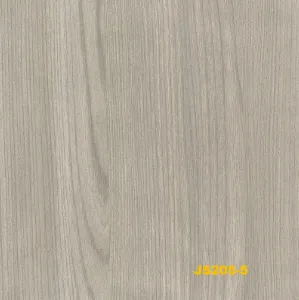- Lakay
- How to Choose the Right Furniture Decoration Paper for Your Project
Jun . 09, 2025 15:33 Back to list
How to Choose the Right Furniture Decoration Paper for Your Project
Updating your furniture with decorative paper is an affordable and creative way to refresh your home’s look. Whether you’re covering old surfaces or adding a unique design touch, choosing the right papye adezif pou mèb is crucial. With options like papye pou mèb, papye kontak pou mèb, and papye kolan pou mèb, it’s essential to understand their differences and applications. This guide will help you select the best material for your project, ensuring durability, style, and ease of use.

Understanding the Different Types of Adhesive Paper for Furniture
When selecting papye adezif pou mèb, it’s important to know the available options. Paper for furniture typically refers to thin, decorative sheets that can be glued onto surfaces, while papye kontak pou mèb often includes a self-adhesive backing for easier application. Sticky paper for furniture is another term for self-adhesive variants, offering convenience and a strong hold. Each type varies in thickness, durability, and finish, so consider your project’s needs before making a choice.
How to Select the Best Contact Paper for Furniture
Choosing the right papye kontak pou mèb depends on factors like surface material, room usage, and design preferences. For high-traffic areas, opt for thicker, waterproof options that resist scratches and stains. If you’re covering kitchen cabinets, a heat-resistant papye kolan pou mèb is ideal. Additionally, consider the finish—matte, glossy, or textured—to match your décor. Always measure your furniture accurately and buy extra to account for mistakes.
Tips for Applying Sticky Paper for Furniture Smoothly
Applying papye kolan pou mèb requires patience and precision. Start by cleaning the surface thoroughly to ensure proper adhesion. Use a squeegee or credit card to smooth out air bubbles as you peel and stick the papye adezif pou mèb. For larger surfaces, work in sections to avoid misalignment. If mistakes occur, gently lift and reposition the papye pou mèb without stretching it, as this can cause wrinkles.
Creative Design Ideas Using Paper for Furniture
Paper for furniture isn’t just functional—it’s a design tool. Use patterned papye kontak pou mèb to create accent drawers or tabletops. For a cohesive look, match the papye kolan pou mèb with your wall color or décor theme. You can even layer different designs for a custom look. Experiment with geometric cuts or metallic finishes to elevate your furniture’s appearance.
About Adhesive Paper for Furniture FAQS
If you’re considering papye adezif pou mèb, you likely have questions about its benefits and application. Below, we address common queries to help you make an informed decision.
What Are the Advantages of Using Contact Paper for Furniture?
Contact paper for furniture is affordable, easy to apply, and available in countless designs. It protects surfaces from scratches and stains while allowing quick updates without permanent changes. Its self-adhesive backing makes it a hassle-free option for DIY enthusiasts.
How Durable Is Sticky Paper for Furniture?
The durability of papye kolan pou mèb depends on the quality and thickness. High-grade options resist peeling, moisture, and daily wear, making them suitable for kitchens and high-use areas. For longevity, choose brands specifically designed for furniture applications.
Can I Remove Adhesive Paper for Furniture Without Damaging Surfaces?
Yes, most papye adezif pou mèb can be removed without residue if done carefully. Use a hairdryer to warm the adhesive, then peel slowly. For stubborn residue, rubbing alcohol or adhesive removers can help without harming the surface.
Is Paper for Furniture Suitable for Outdoor Use?
Standard papye pou mèb is not designed for outdoor conditions, as moisture and UV rays can cause damage. If outdoor use is necessary, look for waterproof and UV-resistant varieties specifically labeled for exterior applications.
Where Can I Buy High-Quality Contact Paper for Furniture?
You can find papye kontak pou mèb at home improvement stores, online retailers, and specialty décor shops. Read reviews and check material specifications to ensure you’re purchasing a reliable product.
Choosing the right papye adezif pou mèb can transform your space with minimal effort and cost. Whether you prefer papye pou mèb, papye kontak pou mèb, or papye kolan pou mèb, understanding their differences and applications ensures a successful project. With proper selection and application, your furniture will look refreshed and stylish for years to come.
Latest news
-
White Contact Paper for Cabinets – Transform Your Kitchen
NouvèlJun.13,2025
-
Duplex Board Paper: Properties and Manufacturing Process
NouvèlJun.13,2025
-
Food Packaging Solutions: Why Duplex Board is a Top Choice
NouvèlJun.13,2025
-
Best Types of Furniture Decoration Paper
NouvèlJun.13,2025
-
What Are the Best Adhesives for Applying Furniture Decoration Paper?
NouvèlJun.09,2025
-
Key Properties and Uses of Duplex Board Paper in Packaging
NouvèlJun.09,2025

